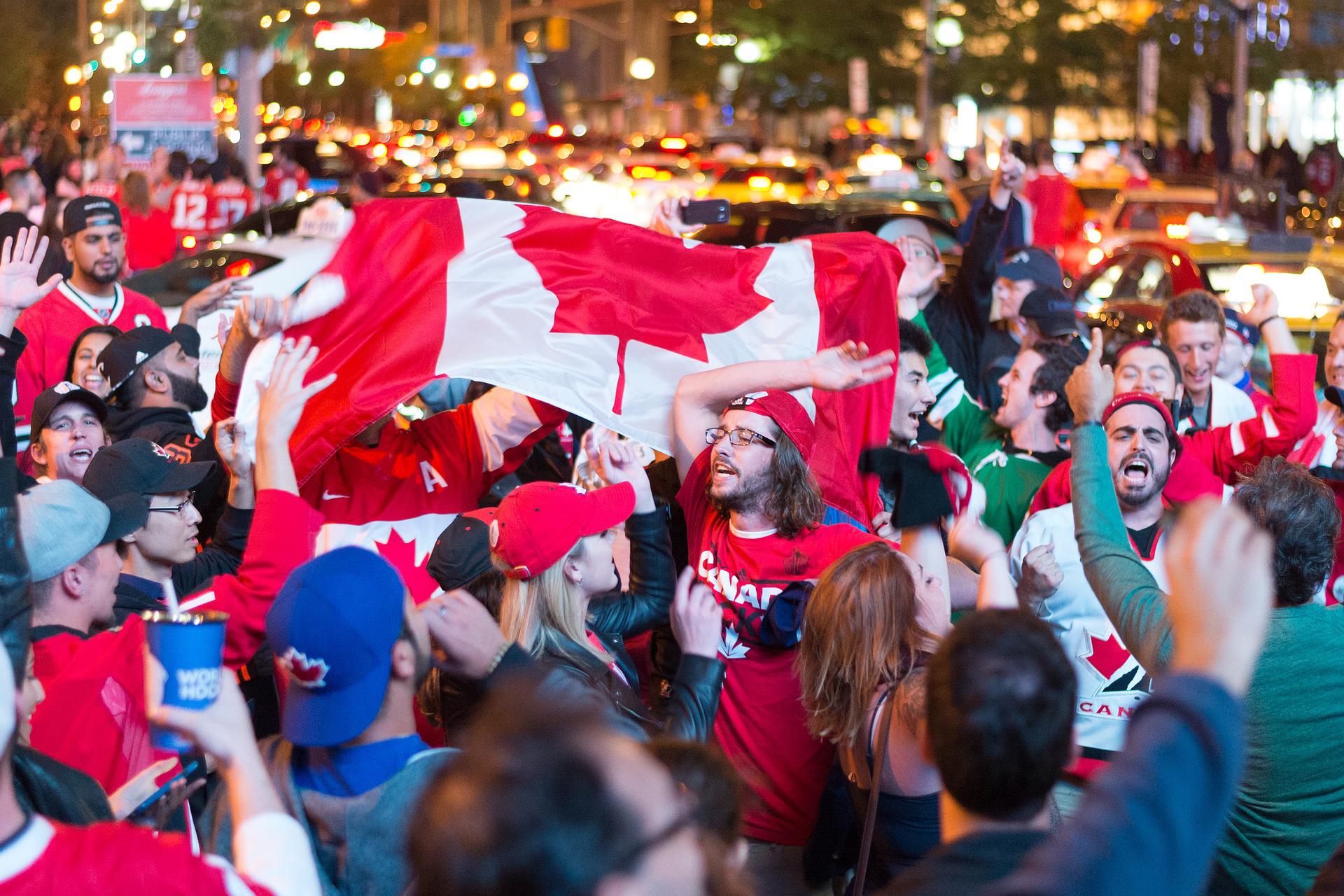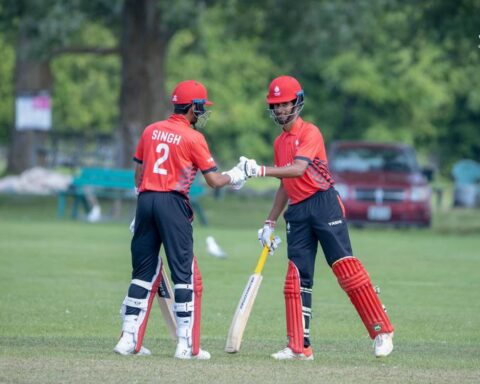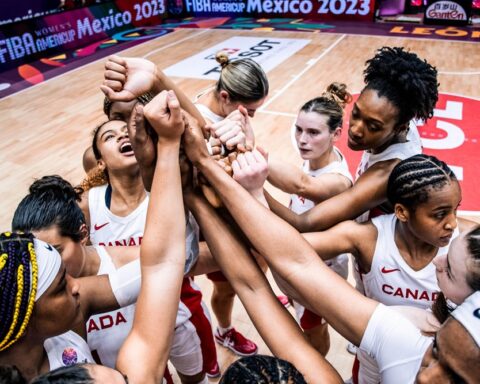When people think about Canada, a few ideas come to mind: friendly people, winter, maple syrup, politeness, multiculturalism/immigration, and hockey.
And there’s nothing more synonymous with Canada than hockey. I’ve never felt more Canadian than I did cheering while watching Sidney Crosby score the game-winning goal against the United States at the 2010 Vancouver Olympics.
Hockey is a source of national pride – which makes the already terrible Hockey Canada sexual assault scandal that much more heartbreaking.
The organization has been wracked by scandal over how it has handled sexual assault allegations against previous men’s junior teams. The federal government slapped a freeze on Hockey Canada’s funding after it was learned a woman filed a lawsuit against Hockey Canada, the Canadian Hockey League (CHL), and eight CHL players. She alleges she was sexually assaulted in 2018 after a Hockey Canada fundraiser.
It was later revealed that the organization used its National Equity Fund – made up of membership fees paid by young players – to pay the claims. Since 1989, 21 settlements have been made, totalling $8.9 million.
Some corporate partners have suspended their support. Hockey Canada executives have been grilled by MPs, and called on to resign. And to make matters worse, members of the 2003 junior team are under investigation for alleged sexual assault in Nova Scotia.
Reflecting on the alleged sexual assaults and the apparent subsequent cover-up, the two words that come to mind are bullying and entitlement. And as more details come to light, I’m reminded about the cracks in the Canadian facade of politeness and relative tolerance.
The Great Canadian Facade
We celebrate our healthcare system, yet it’s overwhelmed. Hospitals are pleading for staff as emergency rooms shut down and nurses leave their jobs en masse. Not to mention the failures in long-term care that resulted in thousands of seniors’ dying in 2020.
We celebrate our tolerance and our welcomeness to newcomers, however, we as a nation have yet to fully reconcile with Canada’s First Peoples, and to go about doing the real work of helping heal over the residential school system, to name just one injustice suffered under colonialism.
And in hockey, popular sportscaster Don Cherry was fired after he launched a tirade against immigrants on-air during Hockey Night in Canada.
While calling Cherry out, critics suggested that his demeanour is indicative of larger issues within the hockey ecosystem. People argued that hockey culture can be misogynistic, exclusionary, abusive and a cesspool for toxic masculinity. Cherry’s firing was an opportunity to highlight that.
The revelations we’ve gotten in the past two months about the Hockey Canada scandal are further evidence that’s true.
In 2019, journalist Erica Ifill characterized Cherry’s outburst as “the angry rants of a white man, well past his prime, who felt that immigrants owed Canadians.”
Cherry’s comments were uninformed and divisive, creating the illusion of a dichotomy between Canadians and “non-Canadians” and setting the terms for who is and isn’t welcome.
“It’s a constant reminder that no matter how long we are here, or how ‘Canadian’ we become, we are still just visiting in the eyes of the white majority in Canada,” Ifill wrote.
Listening to Women
Former Olympian and sports journalist, Laura Robinson, wrote “Crossing the Line”, about the rampant hazing and sexual assault in Canadian Junior Hockey, in 1998. The link between violence and hockey, specifically sexual violence, isn’t new.
As Robyn Urback wrote in an opinion piece about the ongoing Hockey Canada scandal, “These specific allegations may have remained largely unknown and unreported until recently, but the toxic locker-room culture – an incubator for abusive behaviour and misogyny – was there for all who wanted to look.”
This Hockey Canada scandal has me reflecting on the Don Cherry “you people” rant from a few years ago. I remember a female journalist of colour said Cherry deserved # to be fired and called out hockey’s exclusive and toxic culture and she got DRAGGED.
She’s owed an apology.
— Marcus Medford (@marcus_roi) August 4, 2022
Yet there is hope.
Since the story broke, several hockey insiders — from former players to sports journalists to hockey parents — have shared their thoughts and opinions on hockey culture. An Angus Reid Institute survey shows that 56 per cent of respondents with current or past ties to youth hockey agree that sexual misconduct is a grave issue.
Some insiders say rooting out the crude, demeaning, violent and sometimes illegal behaviour that permeates hockey will take time. Hockey Canada has responded to the controversy by releasing an action plan meant to “shatter the code of silence and eliminate toxic behavior in and around Canada’s game.”
But Canadians writ large are skeptical. More than half of respondents to the Angus Reid survey (58 per cent) are not confident in a shift within hockey culture, especially not one that’ll lead to improved treatment of women and girls.
Obviously, the accusations of sexual assault and untoward behaviour don’t apply to everyone involved in hockey but clearly there is a massive issue that needs to be addressed.
Existential identity crisis
For the third summer in a row, Canadians are being confronted with an existential national-identity crisis. First it was the failures in healthcare, then the confirmation of unmarked graves at residential schools sites and now a smear on our national game.
It’s another crack in the great Canadian facade and further evidence that things in this country aren’t as rosy as we’d like to believe.
But we can and must do better. As Hockey Canada – hopefully – takes real steps to fix the outrageous occurrences by some who play our national game, perhaps we can individually vow to work together to clean up our other institutions as well. To take real steps toward healing and reconciliation, it starts with listening and reflecting.
So that if anyone were to peer behind the facade, or when it comes time to face ourselves in the mirror, we’d find a welcoming smile and Canadian values that we can all be proud of.
Marcus is a poet, editor and freelance journalist based in Toronto. He currently works with New Canadian Media as an Editor and as a Freelance Writer for ByBlacks.com, The Edge: A Leader's Magazine and The Soapbox Press.




